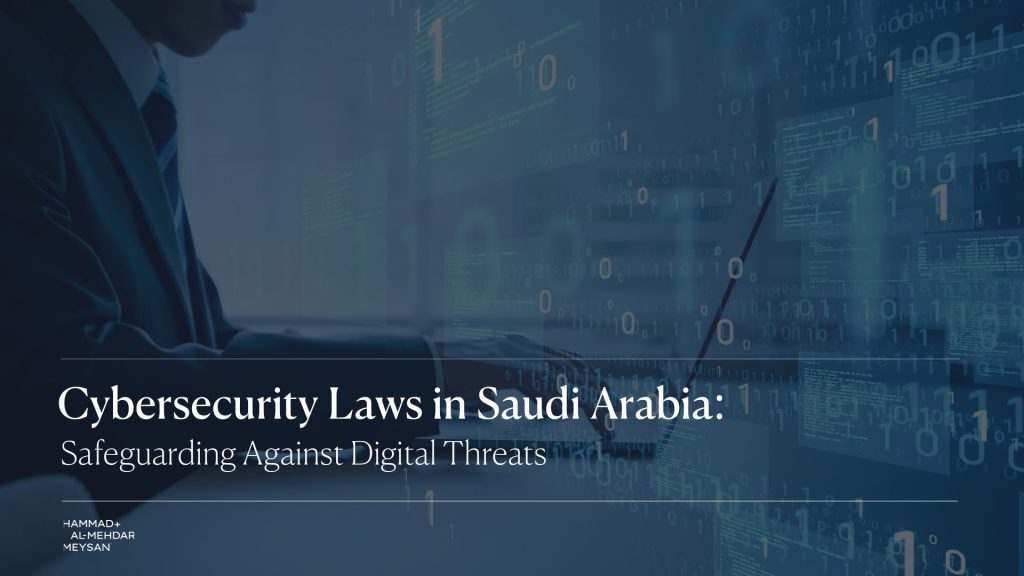
As digital transformation accelerates across sectors, cybersecurity has become a national priority for Saudi Arabia. Anchored by Vision 2030, the Kingdom has taken substantial legislative, regulatory, and institutional steps to build a secure and resilient digital environment. These efforts reflect the growing recognition that cyber threats, whether targeting critical infrastructure, personal data, or digital services, pose serious risks to national security and economic stability.
National Cybersecurity Authority (NCA)
Established in 2017, the National Cybersecurity Authority (NCA) remains the central regulator for cybersecurity in Saudi Arabia. It leads the development and implementation of national cybersecurity strategies, frameworks, and compliance obligations. The NCA mandates compliance with sector-specific and national cybersecurity controls, including the Essential Cybersecurity Controls (ECC), which are compulsory for public entities and operators of critical infrastructure, including those in energy, finance, health, transport, and telecom sectors.
Recent NCA circulars and updates continue to emphasise cybersecurity maturity assessments, third-party risk management, cloud security controls, and incident response protocols.
Cybercrime Law (Royal Decree No. M/17)
The Cybercrime Law, issued under Royal Decree No. M/17 (2007) remains a foundational statute. It criminalises a wide range of offences, including unauthorised system access, data breaches, identity theft, electronic fraud, and the creation or dissemination of malicious software. Although drafted before the current digital boom, it remains in effect rigorously. The government is currently reviewing potential amendments to further modernise the law in light of emerging threats, such as ransomware, AI-driven cyberattacks, and deepfake technology.
Personal Data Protection Law (PDPL)
The Personal Data Protection Law (PDPL), enacted in 2021 under Royal Decree M/19 and fully enforced as of September 2023, represents a significant step forward in aligning with global standards, such as the GDPR. The PDPL mandates data controllers to:
- Obtain explicit consent before data collection
- Implement robust technical and organisational security measures
- Notify breaches within specified timeframes
- Ensure cross-border data transfers comply with local rules
Enforcement is overseen by the Saudi Data and Artificial Intelligence Authority (SDAIA) and its executive arm, the National Data Management Office (NDMO). As of early 2025, SDAIA has issued several supplementary regulations to guide businesses on practical compliance.
Capacity Building and Workforce Development
Saudi Arabia continues to invest in cybersecurity human capital through initiatives such as:
- CyberIC Programme – focused on professional development and national capacity building
- Saudi Cybersecurity Federation – supporting competitions, education, and skills training
- Public-private partnerships with global tech firms for training and infrastructure modernisation
These efforts aim to cultivate a strong domestic talent pool capable of defending against sophisticated cyber threats.
Regional and International Cooperation
Saudi Arabia is an active participant in global and regional cybersecurity frameworks. It collaborates with:
- The Gulf Cooperation Council (GCC) on regional incident response coordination
- The International Telecommunication Union (ITU) on standardisation and cybersecurity rankings
- Bilateral agreements with major nations to enable knowledge-sharing and joint readiness
Such collaboration strengthens the Kingdom’s global cybersecurity posture and supports harmonisation with international standards.
Business Obligations and Compliance Imperatives
For companies operating in Saudi Arabia, cybersecurity is a regulatory and strategic requirement. Organisations must:
- Comply with NCA-mandated controls (such as ECC)
- Ensure PDPL-compliant data handling and breach reporting
- Conduct regular security risk assessments and third-party audits
- Train staff on cyber hygiene and incident response
Non-compliance can result in significant fines, reputational harm, and operational disruption. As cyber threats become more complex and targeted, proactive compliance is now central to corporate governance and enterprise risk management.
Saudi Arabia has made considerable progress in establishing a comprehensive cybersecurity ecosystem. Through strong legal frameworks, institutional oversight, national skills development, and international cooperation, the Kingdom is better positioned than ever to address current and emerging cyber threats. As the digital economy expands, maintaining trust, resilience, and security in cyberspace will remain fundamental to national prosperity and stability.

